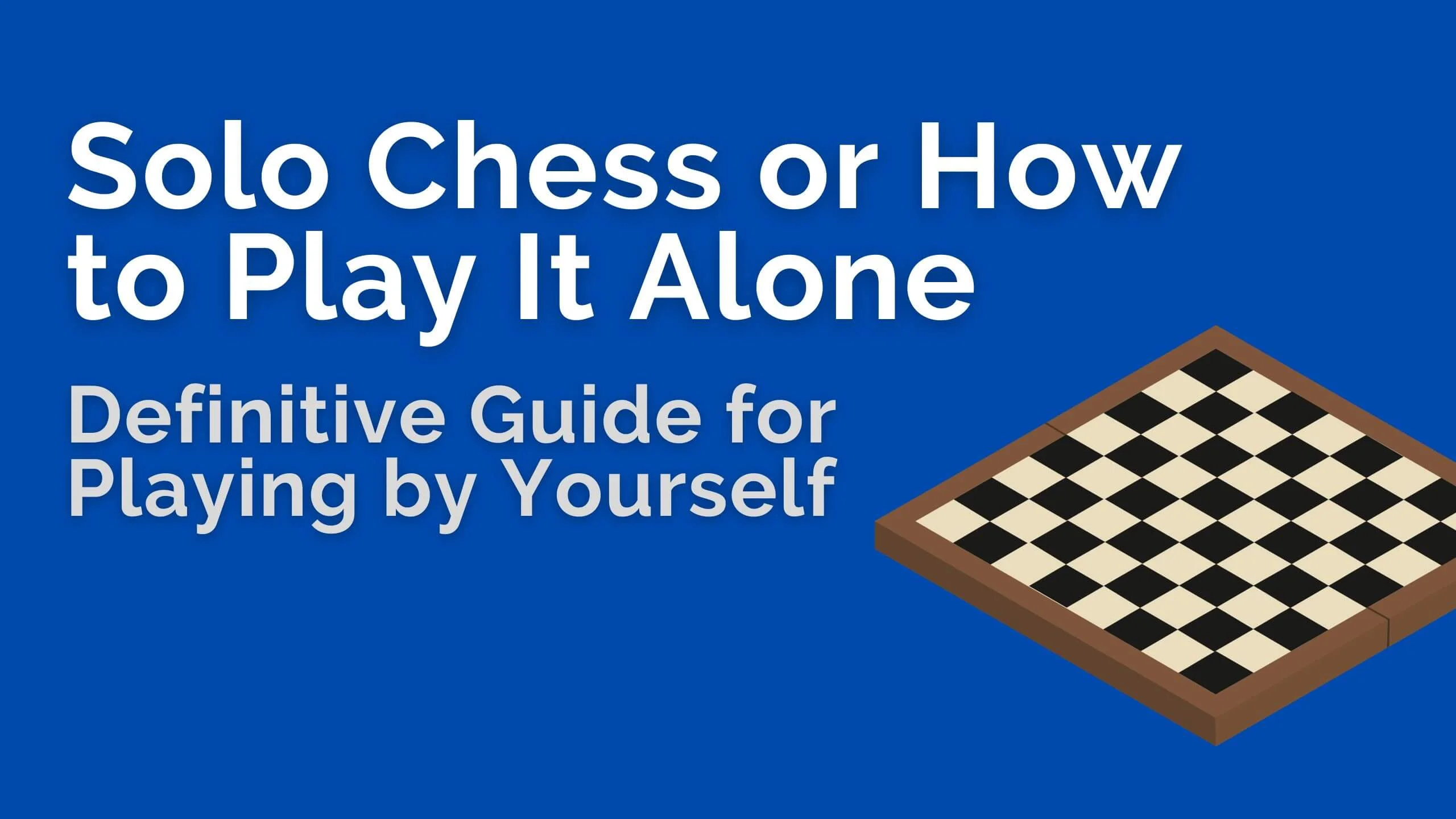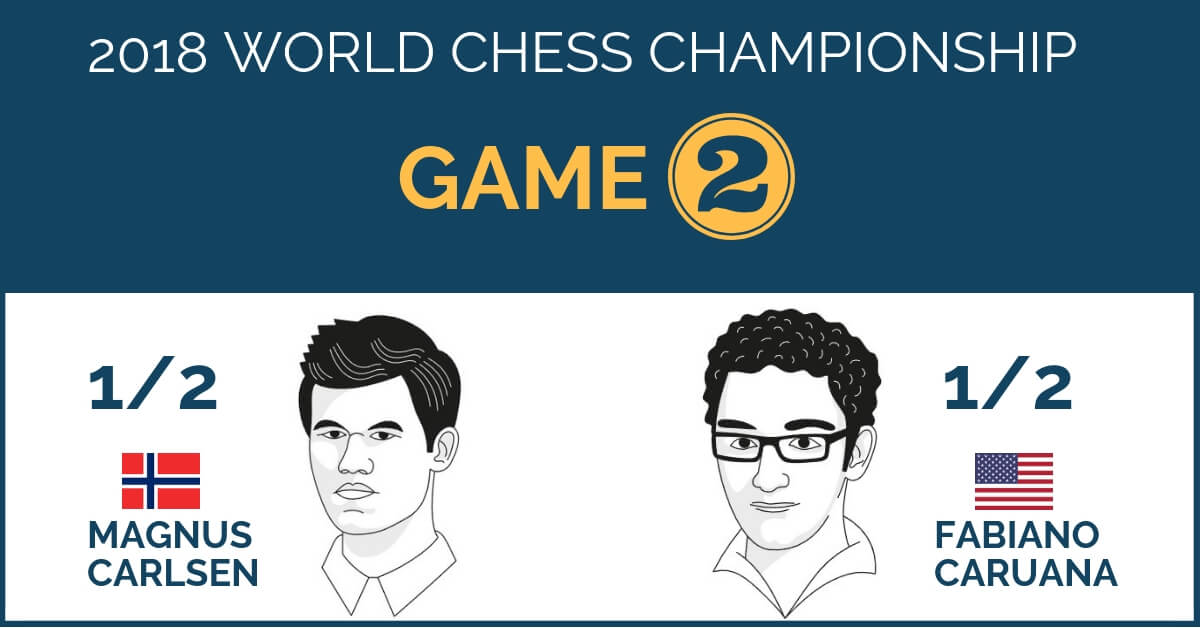Solo Chess or How to Play It Alone: Definitive Guide for Playing by Yourself

Chess is a social game that involves the active participation of two players. There are many ways to enjoy the beauty of chess. An often overlooked way to play chess is to play with yourself. But how to play chess with yourself?
The champions of the past played chess against themselves to train. They used to play solo chess whenever they could get their hands on a chessboard. So how to get started with solo chess? This article will be your definitive guide to the world of Solo Chess.
Is it Really Possible to Play by Yourself?
Many players ask if is it worthwhile or useful to play chess with yourself.
As the only perquisite for chess is a curious mind you can play chess by yourself. Playing chess alone offers a fantastic opportunity to learn more about how you think about chess and how much you understand the game in its purity.
How Do You Play Chess by Yourself?
Playing chess alone follows a unique rhythm. Just like in a 1v1 game, you make a move, and instead of waiting for a reply from the opponent you have to make the opponent’s move as well. So you have to alternate between each color just like in a real game and try to play to the best of your abilities.
So, while playing chess alone may lack the immediate thrill of a competitive match, it offers a special view of your chess. All your biases and dogmas on chess come to the fore.
Use the right chess set
You can play chess alone with the Standard OTB Board. Playing chess on a board gives you the feel of a real tournament game. Chess practice of real competitive scenarios is important and using the OTB Chess board helps in that regard.
But how to play chess alone if you want a more personalized and compact experience you can get the mini chess board. This chess set fits in a compact space and is portable as well. So you can play chess anywhere anytime.
Play chess puzzles
Playing out chess puzzles from both sides yourself can be a fun learning experience. As one side is winning and the other side is losing. You calculate all the moves in the position for the winning side and change over to the defensive side to get a new perspective.
From the defensive side try to refute the move you just played. Think how hard your opponent would try to defend the position. This helps to improve attacking as well as defensive play.
Setup white chess pieces first
It makes sense to begin with the white pieces because White has the first move of the game. Setting up the board in the proper order prepares you for the solo chess game ahead.
The best way to start the game as White for beginners is to open with a classical move.
Give enough time with every chess move
When playing chess alone it can be tempting to rush the moves. Especially on the side, you don’t like chess practice. This is counterproductive as the goal of playing chess alone is to improve thinking from both sides.
Take your time and try to figure out the best move for both sides, even if one of the sides has an unpleasant position in a solo chess game.
Avoid copying moves
The brain loves symmetry and by copying moves when playing chess with yourself you essentially reduce the workload. In a real game black cannot copy White moves forever as White will use the first move advantage to break the symmetry at a favorable point.
So by copying moves, you’re essentially playing against yourself and your bias will lead to the loss of one side rather than due to the position.
Try to think like a real opponent as much as possible.
Play with chess notation
Writing down the moves in your diary or Recorder will help you understand how you play the solo game.
This can help in post-match analysis where you try to find better moves with the help of a stronger player or Engine. Writing moves down also helps you to master chess notation skills.
Play and think like in a regular chess match
It is important to take the match with yourself seriously. Playing the solo match as a real match puts your brain into the real situation. This brings out the best version of yourself and helps you to better understand your chess.
Focus and plan your chess moves
Switching sides in solo chess constantly can be a demanding task. Therefore it is vital to maintain focus for as long as possible. This helps to avoid mutual oversights (very common when playing chess alone) and improves mental stamina.
Whenever shifting sides it’s good to have a plan for both sides. This gives you heuristics to follow in any position and eases the calculation load.
Play the strategy or tactics you just learned
Employing the latest strategy or tactics you learned will help reinforce that pattern in your brain. So when playing with yourself try creating situations or play positions where you can execute the tactic or strategy in a match against yourself.
When you execute them and switch over to the opposite side, try to think of a counter to them. This helps you to learn the pros and cons of the strategy you learn.
Play with your best openings
There is a useful way to play the chess opening stage in solo chess. It is beneficial to play the openings you know. This lets you navigate the opening stage without difficulty and focus on the middlegame and later stages. Playing the opening moves for both sides also helps you to remember the opening sequence.
By playing your best openings you are already familiar with the typical plans and tactics for the pieces.
Do not favor one side while playing chess alone
This is the greatest hurdle to overcome when playing chess alone. It is important to be objective about the position and not get emotionally attached to one side in a solo chess game.
More often than not one side slowly drifts into a worse position. The Ideal scenario would be to try to recover from the worse position as much as possible.
Whenever in such a situation spend more time on the defensive side.
Play alone with a chess clock
As you simulate a real chess game it is essential to have a clock by your side. This is good chess practice and it helps to measure and observe the time spent on each move for both you and your opponent. Just like in a real game clock would run for both sides and you’d be constantly thinking.
Play chess alone to win
Playing to win in chess is imperative in solo chess. Therefore playing out a variation that might lead to a draw is counterproductive. Try to seek out the truth in any position and try to win from both sides. In this way, you can learn the maximum from each game.
Make a note after playing chess alone
The habit of making notes after each game against yourself will help you reinforce the ideas you learned during the self-sparring session. Write down the emotions, variations calculated, preference for a side, focus levels, etc
Compare moves with the Chess GM
After the game check the database for any Grandmaster games that followed the same path. Check until what point your game followed the Grandmaster game. Try to figure out why the master deviated and what were the different plans and strategies.
Set an alone chess play schedule
Playing chess with yourself is a time-consuming task. Scheduling the session will help you to be accountable and play with proper timing.
Playing the Opening Game
Defining the goal of the session helps you to play the game accordingly. If the goal is to learn a new opening then playing a self-opening game is helpful. Play out the memorized variations slowly and try to understand the purpose of each move for both sides. Learn to recognize why a particular move is the best way to start a game.
You can also deliberately deviate from a known opening move. This checks whether you know the opening well enough to handle the sidelines.
Playing the Middlegame and Endgame
If the goal of the session is the Middlegame and the Endgame then you can skip over the opening quickly. Arriving at the starting middlegame position you can start thinking from here.
Follow the known plans or try to create your plans and counter them.
FAQ About Solo Chess Game
What is the solo game of chess?
A solo game of chess is a way of playing chess in which you play the game against yourself. That is you play the white side first and then play the move for the black side as well.
Is it possible to play chess by yourself?
Yes, it is possible to play chess by yourself. All you need is a chessboard and lots of free time.
Is Solo Chess Good?
Yes, playing solo chess can be beneficial to your overall chess development. Many chess players use this method to improve in chess.
You might also like 5 Rules of Positional Chess Every Player Must Know as well as What Do You Need to Know about Strategy and Tactics?.










Comments: